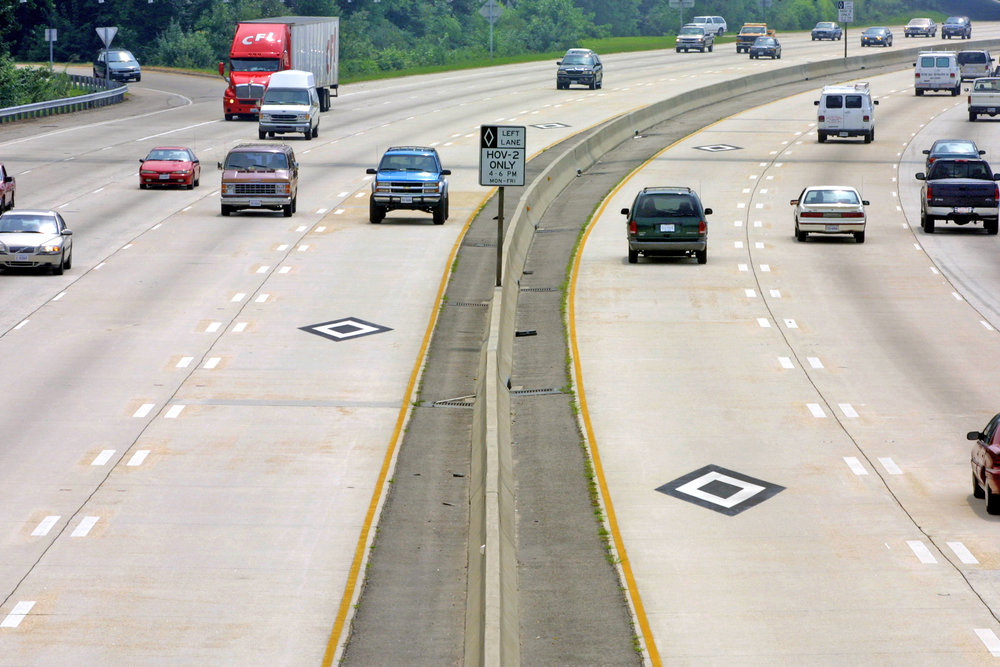HOVs to ease traffic congestion, air pollution in Tehran

TEHRAN — Tehran Municipality is planning on introducing high-occupancy vehicle lanes in two of the expressways in the capital with the goal of reducing traffic congestion and air pollution.
A high-occupancy vehicle lane (also known as carpool lane, diamond lane, 2+ lane, and transit lane or T2 or T3 lanes) is a restricted traffic lane reserved at peak travel times or longer for the exclusive use of vehicles with a driver and one or more passengers, including carpools, vanpools, and transit buses. The normal minimum occupancy level is 2 or 3 occupants.
Studies to implement HOV lanes in Niayesh Expressway, north-central Tehran, and Imam Ali Expressway, eastern Tehran, are well underway, Mehr news agency quoted Maziar Hosseini, deputy mayor for traffic and transport affairs, as saying on Friday.
“We have made necessary arrangement with Traffic Police and fortunately we agreed upon the matter,” Hosseini highlighted.
He went on to say that traffic regulations will be imposed in these lanes as well by mounting traffic enforcement cameras on the side of the ways.
The possibility of implementing HOV lanes was once discussed and considered some five years ago in Tehran while vehicles with only one occupants are deemed as the main culprit of persistent air pollution in metropolis of Tehran.
HOV lanes are normally created to increase average vehicle occupancy and persons traveling with the goal of reducing traffic congestion and air pollution, although their effectiveness is questionable.
However, HOVs are fast and less crowded lanes for emergency vehicles which seems to be vital to a metropolis.
MQ/MG
